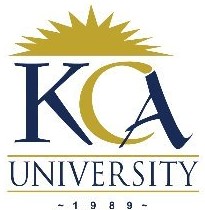
UNIVERSITY EXAMINATIONS: 2018/2019
ORDINARY EXAMINATION FOR THE BACHELOR OF SCIENCE IN IT,
BACHELOR OF SCIENCE IN BUSINESS INFORMATION TECHNOLOGY,
BACHELOR OF SCIENCE IN APPLIED COMPUTING
KCAU001 BIT1111 HIV&AIDS
APRIL 2019 TIME: 2 HOURS
INSTRUCTIONS: Answer Question One and Any Other Two Questions
QUESTION ONE
a) The debate on the impact of HIV/AIDS in different sectors such as agriculture, Health,
Education and households is an unending one with every part of the economy being
directly or indirectly affected by the pandemic. In view of this debate, discuss leadership
policies on HIV/AIDS that can be applied in fighting the spread of HIV/AIDS basing
your answers on:
i. Religious Leadership (5 marks)
ii. Local leadership (5 marks)
iii. International leadership (5 marks)
b) Differentiate between primary, secondary and tertiary sources of information giving
relevant examples in each case. (9 marks)
c) Define the following terms:
i) Information needs (2 marks)
ii) HIV/AIDS (2 marks)
iii) Mother to Child Transmission (2 marks)
QUESTION TWO
a) With relevant examples explain why information literacy is important to:
i) University students (5 marks)
ii) Workplace (5 marks)
b) When you want to locate a specific book that you need to borrow from the library
collections, the OPAC is recommended as the first point of reference. Briefly describe 5
purposes of a library catalogue. (10 marks)
QUESTION THREE
a) Explain four impacts of living with HIV/AIDS on school going children. (4 marks)
b) Substance use and HIV/AIDS infection are linked to one another. Describe four reasons
why substance users are at higher risk of getting infected with HIV virus than non-users.
(16 marks)
QUESTION FOUR
a) Analyze the different stages of HIV/AIDS. (15 marks)
b) With illustrations identify the different types of Boolean operators ( 5 marks)
QUESTION FIVE
a) Explain the four factors to consider when evaluating information sources for academic
writings. (8 marks)
b) Describe three types of plagiarism that students are likely to commit when synthesizing
academic products. (6 marks)
c) Explain briefly the role of technology in the spread of HIV/AIDS. (6 marks)
